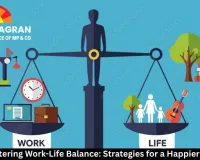The "Dumb Phone" Dilemma: Why People Are Choosing to Disconnect
Digital Desk
.jpg)
In a surprising counter-cultural shift, a movement of individuals is voluntarily swapping their sleek smartphones for so-called "dumb phones." These are basic devices that can call, text, and sometimes take a photo,but offer no access to the endless scroll of social media, emails, or the internet.
This trend, largely driven by Gen Z and millennials who grew up hyper-connected, is a direct response to digital burnout. Proponents cite a desire to be more present, reduce anxiety, and reclaim hours of lost time. "I was tired of being a slave to the screen," explains one former smartphone user who made the switch. "My dumb phone forces me to look at the world around me and actually talk to people."
The benefits reported are profound. Users often find they read more books, have deeper conversations, and feel a significant reduction in the "compare and despair" trap of social media. The simple act of having to look up directions on a map or remember a piece of information instead of instantly Googling it engages the brain in a different, more active way.
Of course, the transition isn't without its challenges. Navigating without GPS, missing group chats, and the inconvenience of not having a camera in your pocket are common hurdles. For many, it’s not about abandoning modern technology entirely, but about creating healthier boundaries.
The dumb phone trend is a powerful statement. It highlights a growing collective awareness of the costs of constant connectivity and a conscious choice to prioritize mental well-being over digital convenience. It seems that in an all-online world, the ultimate luxury is the freedom to log off.

1.jpg)

2.png)







